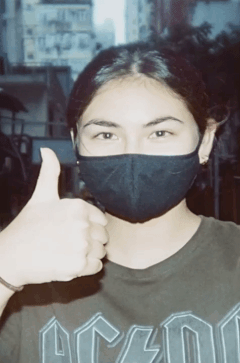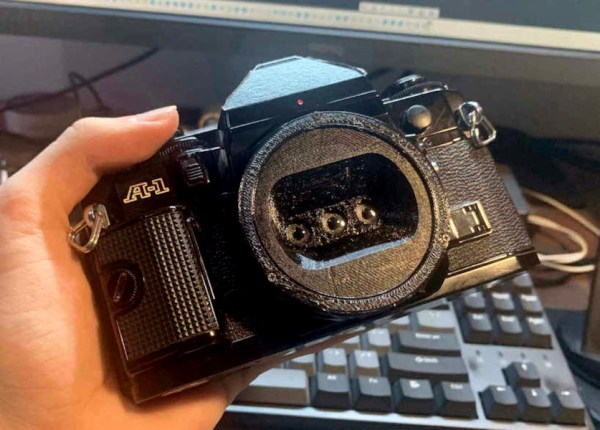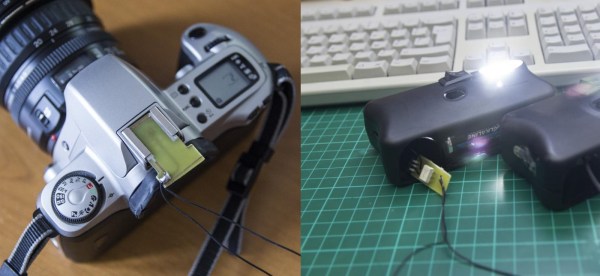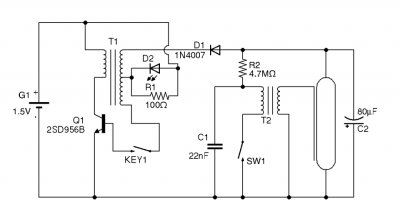Have you ever heard of a wigglegram? They are made by shooting multiple pictures at once using multiple lenses, and the the resulting stitched-together ‘gram is kind of a gif version of a stereographic image. It looks 3D, and it — well, it wiggles. The ones with a boomerang effect (i.e. a good loop) are especially prized.
 Wigglegrams are often produced with Nishika quadrascopic cameras, which have naturally climbed in price to address the growing demand. Nishikas have four lenses and create four separate half-frame images by splitting the four photos across two frames of film. In contrast, [Joshua]’s DIY eye uses three plastic lenses from disposable film cameras to put three images onto a single frame of film.
Wigglegrams are often produced with Nishika quadrascopic cameras, which have naturally climbed in price to address the growing demand. Nishikas have four lenses and create four separate half-frame images by splitting the four photos across two frames of film. In contrast, [Joshua]’s DIY eye uses three plastic lenses from disposable film cameras to put three images onto a single frame of film.
The only real drawback is that the camera has to be close to the subject because the three lenses are so tightly packed. Another drawback is that there is no viewfinder while using this lens. There have to be divider walls between the three lenses to keep the images separate, and these walls have to extend all the way into the camera body. The Canon A-1’s viewfinder mirror does not allow for this, so [Joshua] pushed it up out of the way.
[Joshua]’s initial design approach to finding the ideal lens distance from the film plane was to do a bunch of calculations, but he ended up Goldilocks-ing it and iterating a bunch of times until it was just right. If you have a Canon SLR and want to build one of these, you’re in luck as far as the STLs go.
What else can you do with a bunch of old disposable cameras? Build your own flash, of course.
[via r/functionalprint]













